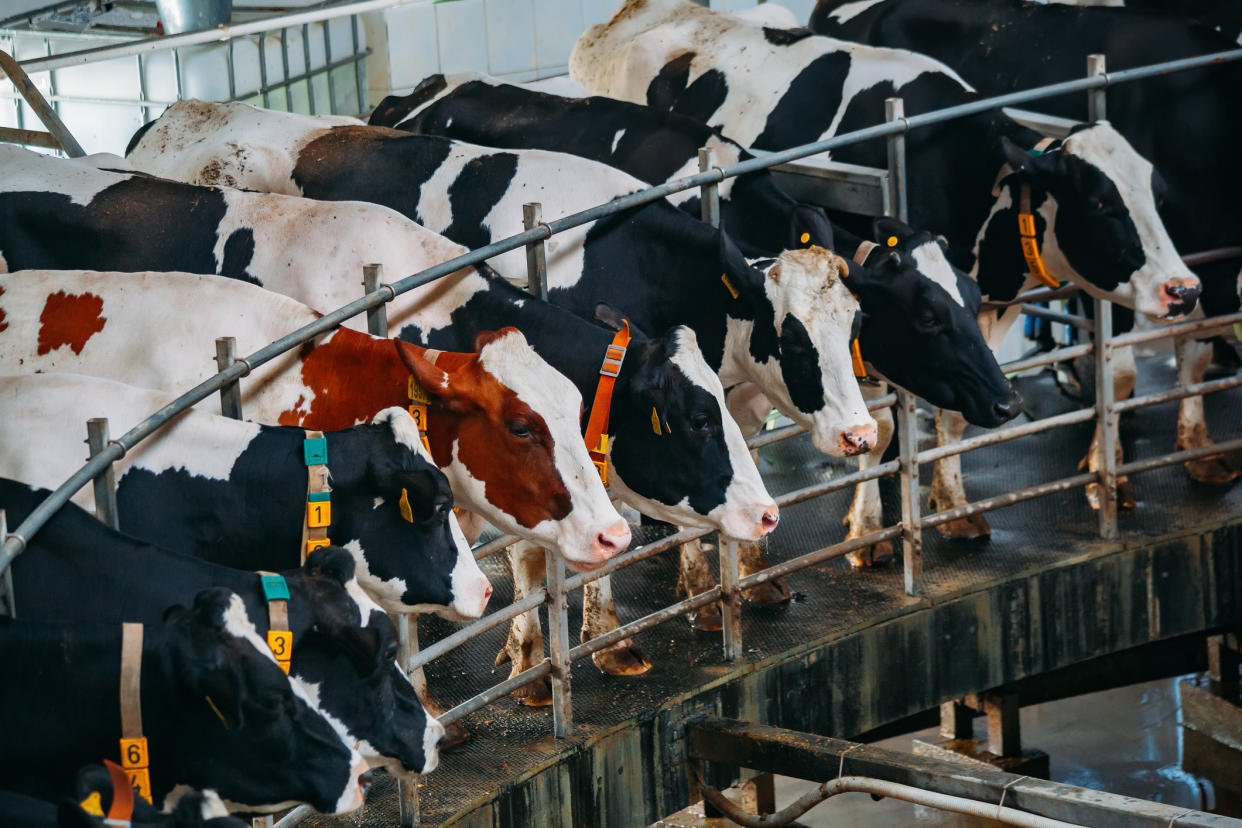What We Know About the Latest Case of Bird Flu in a Person

Credit - Getty Images—iStockphoto
Bird flu, or avian influenza, can be deadly in birds but normally doesn’t infect people. While some strains have caused serious disease and even death in humans, most cause relatively mild symptoms.
In the U.S., two people have been known to be infected with avian influenza: one person in 2022, and another earlier this year. In a report published Friday in the New England Journal of Medicine—amid growing concern over infections jumping from birds to cows—health officials from the U.S.Centers for Disease Control and Prevention (CDC) and Texas Department of State Health Services provide details on the latest human case.
According to the report, a dairy farm worker in Texas developed redness and some drainage from his right eye in late March. Because the Texas Animal Health Commission and the U.S. Department of Agriculture had reported at the end of March that bird flu viruses were detected in two Texas and two Kansas dairy farms, veterinarians in the area were alert for symptoms of infection in sick cows and in people. A vet referred the dairy worker for testing at a Texas Department of State Health Services field office, according to a spokesperson for the department. He did not develop any fever or difficulty breathing—which are among the potential symptoms of infection—and his vision remained normal. Dr. Scott Milton, a regional health director for the department, took swabs from the worker’s eyes and back of his throat, and these were analyzed at the Texas Tech Bioterrorism Response Laboratory in Lubbock, where preliminary results were positive for highly pathogenic avian influenza (HPAI)A and A(H5).
Read More: Is It Safe to Eat Eggs and Chicken During the Bird Flu Outbreak?
Health officials advised the man to isolate at home and prescribed the antiviral drug oseltamivir for five days to him as well as to members of his household to protect them from infection. So far, there have not been reports of sustained spread of avian influenza from person to person, but the antiviral medications were prescribed in an abundance of caution. The redness in his eyes resolved after several days, and the worker never developed any respiratory problems.
Additional analysis of the worker’s samples by researchers at the CDC labs in Atlanta confirmed the specific type of avian influenza involved, HPAI 2.3.4.4b A(H5N1), which has recently been detected in bird and cattle populations. Such bird flu strains generally circulate among avian species, but there have been cases of human infections reported in 23 countries over the past 20 years, according to the new report. Overall, the virus has a 50% mortality rate—but that could reflect a skewed population of people with more susceptible immune systems who are vulnerable to infection, since many cases lead to mild or no symptoms, or symptoms that aren't reported.
The strain in the dairy worker was “closely related” to those found in dairy cattle and birds in Texas during that time, according to the NEJM report. But the genetic analysis was a mixed bag of reassuring and concerning news. The strain that infected the dairy worker does have a change that helps it adapt to infecting mammals, including people. But it does not contain changes that would make it resistant to current antiviral treatments. The virus is also close enough to versions that researchers have used to create candidate vaccines that could be made available if the virus begins to spread from person to person, which has not happened yet.
Read More: Experts Can't Agree If We're Still in a Pandemic
Health officials from the U.S. Food and Drug Administration (FDA) and U.S. Department of Agriculture (USDA) continue to test milk, cottage cheese, sour cream, and beef to monitor for the virus. While about 20% of milk sold in stores contains fragments of the avian influenza virus, those viruses are not active, according to the latest FDA tests. The agency says that the pasteurization process is designed to kill viruses like HPAI, and therefore advises against consuming any unpasteurized dairy products, such as raw milk.
Contact us at letters@time.com.

 Yahoo News
Yahoo News 
